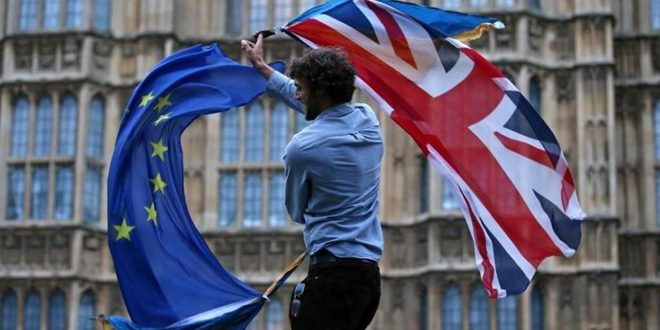It took 11 grueling months for negotiators from Britain and the European Union to hammer out the terms of a post-Brexit trade deal. But in many respects, the deal is already four and a half years out of date.
The world has changed radically since June 2016, when a narrow majority of people in Britain voted to leave the European Union, tempted by an argument that the country would prosper by throwing off the bureaucratic shackles of Brussels.
In those days, the vision of an agile, independent Britain — free to develop profitable, next-generation industries like artificial intelligence and cut its own trade deals with the United States, China and others — was an alluring sales pitch. The buccaneers of Brexit promised to create a “Global Britain.”
That was before the anti-immigrant and anti-globalist-fueled rise of President Trump and other populist leaders who erected barriers to trade and immigration and countries turned inward. It was before the coronavirus pandemic exposed the vulnerabilities of far-flung supply chains, fueling calls to bring strategic industries back home and throwing globalism into retreat.
In the anxious dawn of 2021, buccaneers are out of fashion. The world is now dominated by three gargantuan economic blocs — the United States, China and the European Union. Britain has finalized its divorce from one of them, leaving it isolated at a time when the path forward seems more perilous than it once did.
“The whole ‘Global Britain’ model doesn’t reflect the more protectionist, nationalistic world we’re living in,” said Thomas Wright, the director of the Center on the United States and Europe at the Brookings Institution. “Becoming a global free trader in 2016 is a bit like turning into a communist in 1989. It’s bad timing.”
As Prime Minister Boris Johnson leads Britain into a post-Brexit future, he also risks being out of step politically.
The Brexit agreement with the European Union comes at the very moment that President-elect Joseph R. Biden Jr. is replacing Mr. Trump’s “America First” credo with a message of mending alliances and collaborating to tackle issues like global health and climate change.
Mr. Johnson has pivoted by highlighting other ways that Britain can work with the United States. It is increasing military spending to reinforce NATO and playing host at a United Nations climate summit next year, which will give Mr. Biden a platform to re-engage the United States in the climate challenge.
Britain once hoped its free-agent status would allow it to develop a thriving commercial relationship with Beijing, unencumbered by the baggage of the European Union or the United States. But under pressure from Mr. Trump on the role of the Chinese telecommunications giant Huawei in 5G networks, Britain has largely abandoned its cultivation of China, falling in line with the United States’ more antagonistic position.
Source : The New York Times







